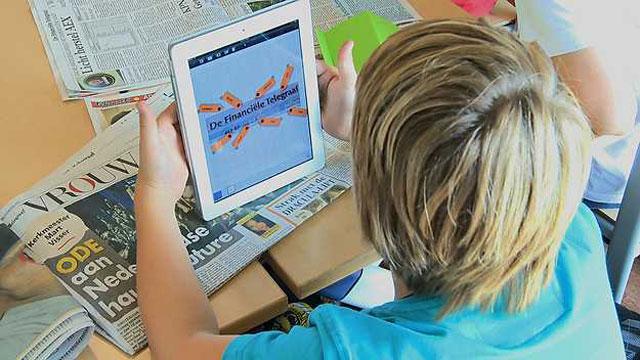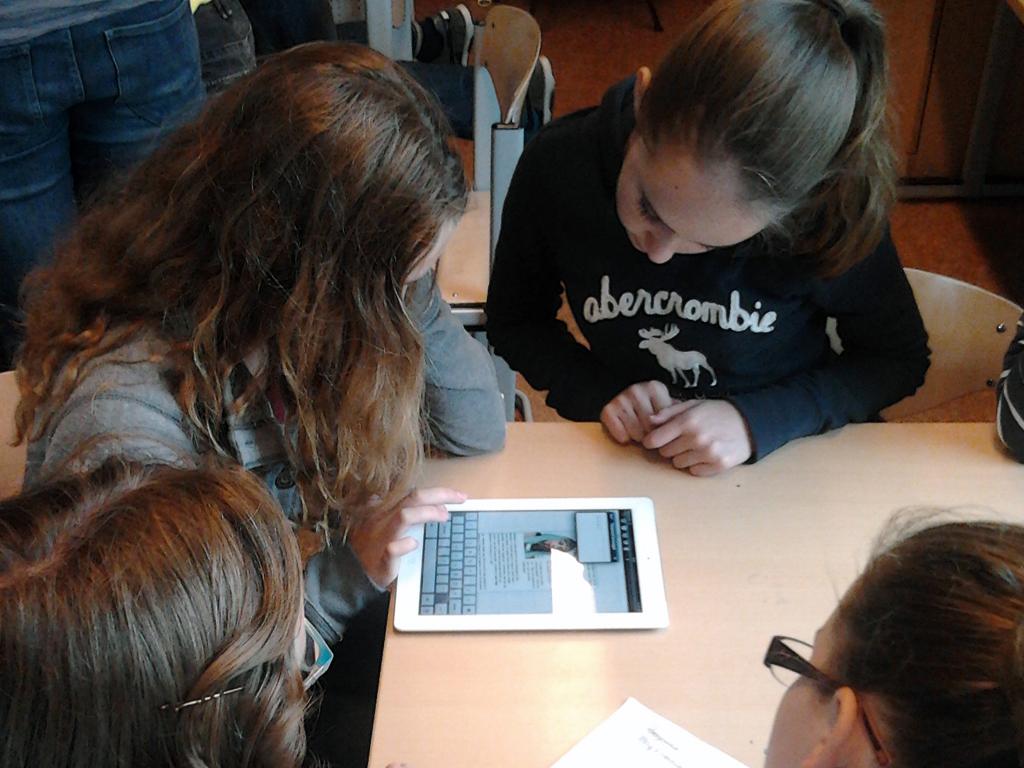From the field of education the reactions on the initiative of Maurice de Hond's the iPad school are mixed. On the one hand, critics point out that there are already existing similar initiatives (it is not very new) and secondly, the primacy of technology is critized. The reaction of de Hond on his critics is easy, he says they have no right to speak because they are illiterate and technophobe.
If only that were true. Than rescue would be near. Some additional IT training and iPads and the problem is solved. But despite all ICT investments in education, no major innovations have been achieved. The issue is not so much technological, but revolves around vision, principles and the organizational structure of education.
Waag is involved in innovation in education since 1994 with our Creative Learning Lab. We are working on new learning methods such as the online learning adventure Demi Dubbel, mobile programs as Frequentie1550 and MobileMath and the award-winning project Digital News collage in which we combine iPads with the digital schoolboard. Waag is the bridge between technology, education and creative and social subjects, for instance with the Fabschool in which digital printing and manufacturing techniques are used.
Are we effective with these innovations? We have recently commissioned a study with control groups on the effects of serious gaming and mobile learning. The outcome is encouraging. Students are not only motivated, they also have better learning outcomes. Is that because young people can play with cool gadgets that fit their world? Certainly. This definitely adds to their motivation. But it is not so much the gadgets themselves, it is the different learning-experience that is made possible by new media. The choice is made to implement forms of teaching in which dialogue, cooperation, exploring and experiencing physical and narrative techniques are central. That is at odds with the division into grids and boxes that is dominant in current teaching methods. It comes from a radically different view of what learning means. Various studies have shown that knowledge sinks in more when it addresses the questions we have. This is contrary to the educational model as we know it. Teachers do not trust their pupils to have questions. We teach them not to ask questions. Students are trained to repeat officially set knowledge. In the margins is room for some creativity. The primary concern teachers have, is to drag unmotivated students through the educational content.
I agree with Gallup that the current school system leaves little or no room for teachers to use new techniques. Ideally, they would have more time to experiment and explore these new techniques. Of course, new media and internet help. They offer more space for explorative learning. Smart content can stimulate intrinsic curiosity. Locative media helps to open up the classroom and to start using the city and the country as a context for learning. But new media might as well stimulate the wrong attitude to learning and teaching. By implementing rewarding structures from the world of gaming that undermine intrinsic interest for instance. Or by making teaching more anonymous and reducing students to tracking numbers.
Not the iPad provides the revitalization of education, but placing individuals and the personality of students central will. A school should facilitate the natural curiosity and development via dialogue, by leaving the school and going outside, by learning from and with older people and by addressing pupils questions and stimulating their involvement in the world. This means a radical break with existing school systems. Thus, I welcome all initiatives that explore new ways in education.

